Why am I Gaining Weight Despite Diet and Exercise? │ QA
If you’re careful with your nutrition, working out weekly, and still experiencing problems with your weight, take a moment to read this QA.
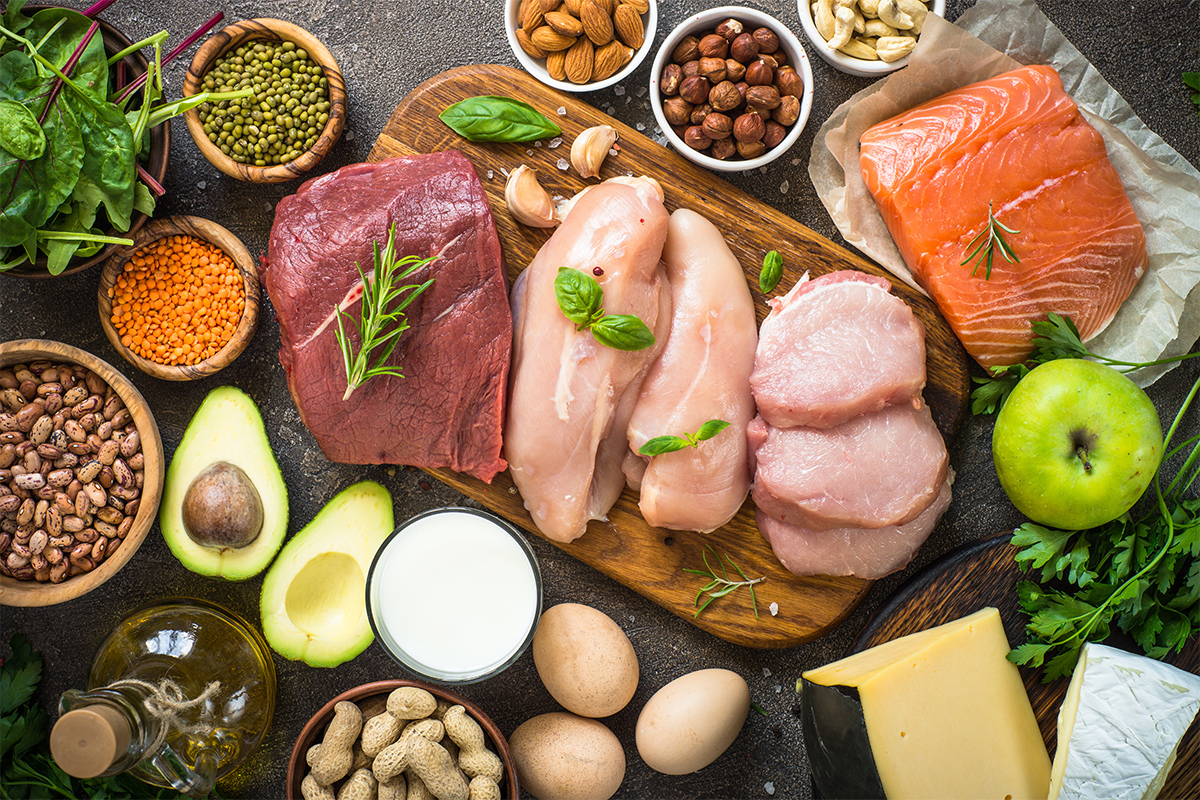

I am a 38 year-old male, 250 pounds, 5’11” and I’ve been steadily working out since June and have lost almost 50 pounds, but I’m curious what is the right amount of protein that I should be taking in daily? I work out 5 or 6 days a week on average and work with a personal trainer six times a month. I usually do about 30-45 minutes of strength training followed up by 30-45 minutes of cardio. I’m currently shooting for somewhere between 130-180 grams of protein a day. Is that enough for my goal of losing weight while building muscle? Thanks.
-Steven M.

Great work on your consistent progress, Steven! For your body weight, goals and activity level your current aim for 130-180 grams of protein daily seems on track. That’s between 1.1 and 1.6 grams of protein per kilogram body weight, ideal for supporting muscle growth with an intensive workout regimen. The range midpoint of 155 grams provides 620 calories which would equate to about 30% of energy if your intake was 2000-2100 calories.
Though you may be counting protein grams and calories, the quality and timing of what you’re eating has as much impact as – if not more than – hitting calculated marks. Remember to support your workouts with some carbohydrate and a little protein in your recovery snack. A high-protein yogurt with fruit or granola works as well as a protein shake. For your main meals, lean proteins, vegetables, whole grains and healthy plant fats will promote efficient metabolism better than typical fare. For example, choose a healthy stir-fry (e.g. chicken, carrots/broccoli, cashews, brown rice) instead of a cheeseburger (regular ground beef, cheese, refined flour bun).
This article should not replace any exercise program or restrictions, any dietary supplements or restrictions, or any other medical recommendations from your primary care physician. Before starting any exercise program or diet, make sure it is approved by your doctor.
Some questions have been edited for length and/or clarity.
 Have a nutrition question? Our registered dietitian is ready to help!
Have a nutrition question? Our registered dietitian is ready to help!
Email nutrition@lafitness.com or submit your question below and it may be featured in an upcoming article!
If you’re careful with your nutrition, working out weekly, and still experiencing problems with your weight, take a moment to read this QA.
Blood sugar control isn’t easy. These are Debbie’s top recommendations for how to address weight control with Type II Diabetes.
Does Intermittent Fasting give you enough time to pack the day's protein? Our registered dietitian helps clear up the confusion!
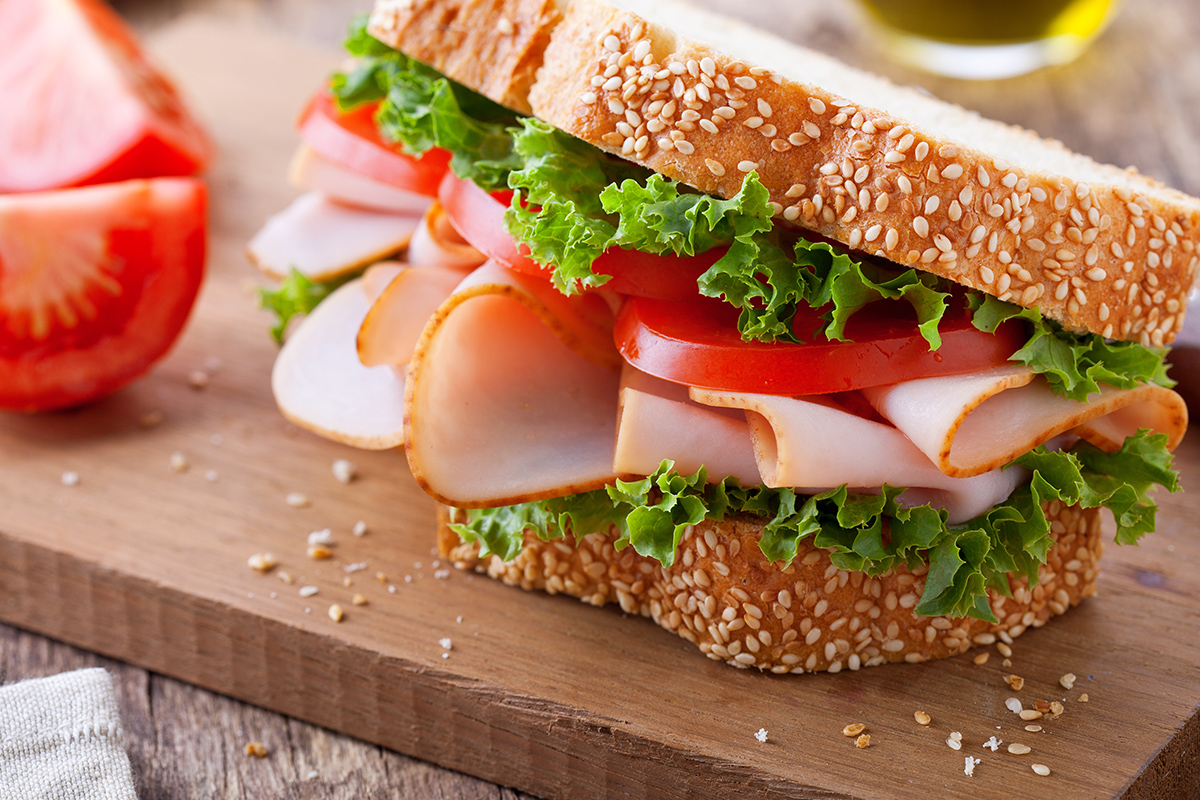

Hi there! I am an LA Fitness member and would love to get some advice from a dietitian regarding my exercise/nutrition plan.
I’m 31-year-old female and have always been lean – genetics/high metabolism I guess. While I know this is what many women want, my problem is that I feel “too skinny.” I’m starting to try heavier weight training and increasing my protein intake, while striving to maintain a balanced diet. I have young kids and can only make it to the gym 1-2 days per week. So, my main question is: on days that I don’t exercise, should I still try to eat higher protein? Or is that only on gym days?
Also, if you could verify my calculations… I’m currently around 120lbs and would like to be closer to 130lbs. So, I’m aiming for roughly 2,100-2,200 calories/day and about 125 grams of protein per day.
Any other advice is greatly appreciated! Thanks,
– Shannon

Lucky for you Shannon, carrying and lifting growing tykes is like having a built in progressive resistance program! Well… for a few years at least, until it becomes unnecessary and impractical. While it still works, you should pick up and carry toddlers with proper posture and body mechanics. According to physical therapists and chiropractors, don’t balance your child on one hip but hold him/her in front of you with his/her legs wrapped around your waist.
In regards to your calculations: functional and structural protein use tops out at around 2.0 gm/kg/day with any excess being used for energy. Consuming about 110 gms protein daily should be sufficient, with a little less on rest days and more on workout days. Following the correct protein timing surrounding your weight training workouts is as important to help stimulate muscle growth.
You actually need a good amount of carbohydrate and fat to provide the fuel for muscle building. Your total energy goal seems realistic, though your actual metabolism doesn’t follow an equation so your true calorie need may be higher or lower. Why not simply try to add 300-500 calories daily rather than keep track of five times that much? Simple foods like a turkey sandwich or apple with graham crackers and peanut butter could provide this energy.
If you’re still having difficulty gaining lean mass, focus on energy dense foods (with little moisture or air) to get the most in every bite and consider adding a weight gainer shake. Cleaning your kids’ plates is also a great way to get extra calories!
– Debbie J., MS, RD
This article should not replace any exercise program or restrictions, any dietary supplements or restrictions, or any other medical recommendations from your primary care physician. Before starting any exercise program or diet, make sure it is approved by your doctor.
Some questions have been edited for length and/or clarity.
 Have a nutrition question? Our registered dietitian is ready to help!
Have a nutrition question? Our registered dietitian is ready to help!
Email nutrition@lafitness.com or submit your question below and it may be featured in an upcoming article!
If you’re careful with your nutrition, working out weekly, and still experiencing problems with your weight, take a moment to read this QA.
Blood sugar control isn’t easy. These are Debbie’s top recommendations for how to address weight control with Type II Diabetes.
Does Intermittent Fasting give you enough time to pack the day's protein? Our registered dietitian helps clear up the confusion!
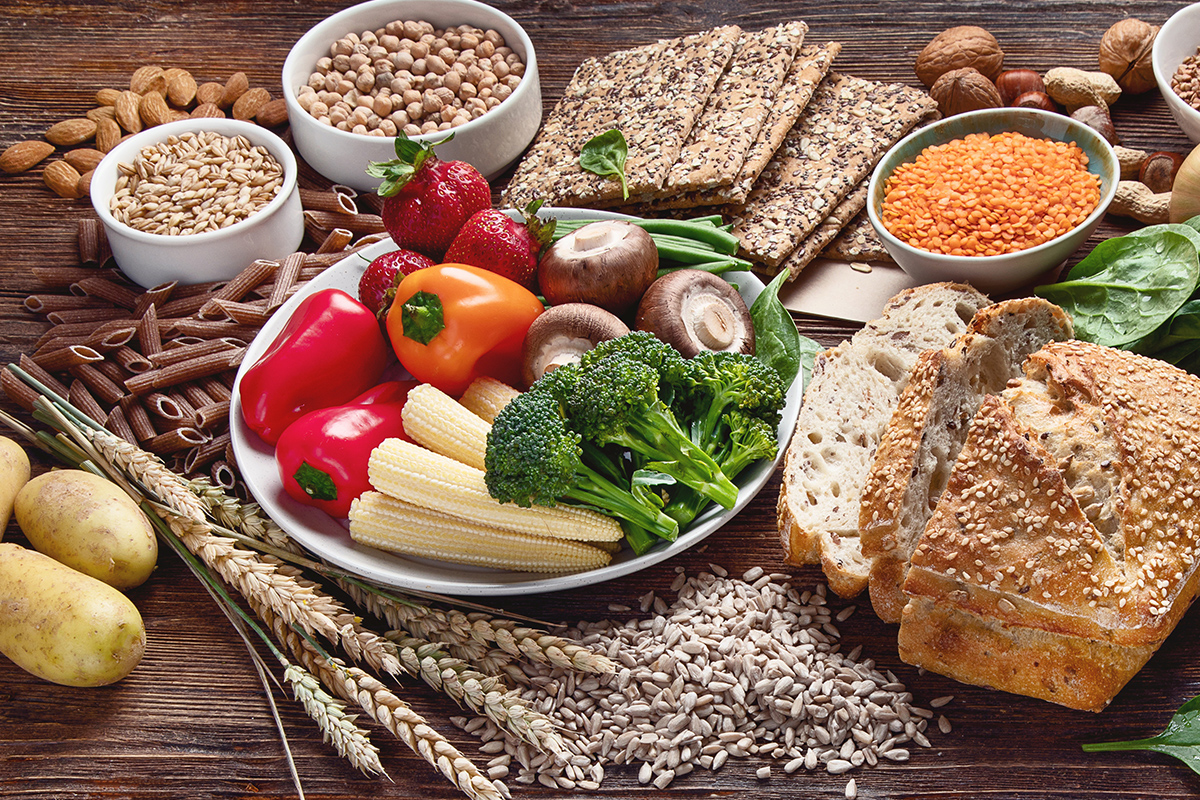

Hi, I was wondering if you would be able to help my girlfriend with her diet. We’re both LA Fitness members. She’s an avid swimmer and eats pretty healthy (usually eating far less than what I normally intake). She has a thyroid issue and suffers from GERD, acid reflux. She was swimming several times a week and doing weights, yet not really losing any weight. And, if she can keep food down it’s a good day for her. She takes stuff for GERD but stopped taking her thyroid medication as she wasn’t getting any change. She was going to try one of the app diets, but her mom passed away this year and canceled on that. So, I was wondering if there’s a diet you would recommend for her, to first get her stomach back on track and possibly help her to lose the weight she wants to drop. Thank you for your help.
– John B

It’s imperative that your girlfriend follow up with her physician on an appropriate course of action regarding her thyroid condition since she stopped taking her medication. Thyroid function determines cellular metabolism and doctors test hormone levels, not body weight, to indicate medication effectiveness.
I’ll assume she requested your assistance, otherwise advice offered by you regarding her diet and weight may not be accepted! (Always a good idea to be clear on a significant other’s intent in sensitive matters.) If she already eats healthy and has had a recent stress, then simply reducing portions may be reasonable versus following a structured diet plan.
For gastroesophageal reflux disease (GERD), the International Foundation for Intestinal Disorders* recommends a diet that includes non-citrus fruits, lean proteins, complex carbohydrates, and vegetables except tomatoes and onions. Low-fat dairy foods, non-mint chewing gum, and small amounts of oils, avocado and nut butters are generally well tolerated. Avoid alcohol, caffeine, carbonated beverages and chocolate.
There is no specific menu plan to follow for losing weight with acid reflux. If your girlfriend is absolutely ready to begin new eating habits, then she may resume her intention of using an app and make adjustments for GERD accordingly. Consumer Affairs recently posted their top 10 weight loss apps of 2019 based on user ratings. And last year Kaiser Permanente shared their reviews of 10 nutrition and diet apps of 2018. That’s twenty apps for her to choose from though not all offer meal plans.
Best of luck to both of you for 2020 from Living Healthy!
* https://www.aboutgerd.org/diet-lifestyle-changes/diet-changes-for-gerd.html Accessed 11/22/2019
– Debbie J., MS, RD
This article should not replace any exercise program or restrictions, any dietary supplements or restrictions, or any other medical recommendations from your primary care physician. Before starting any exercise program or diet, make sure it is approved by your doctor.
Some questions have been edited for length and/or clarity.
 Have a nutrition question? Our registered dietitian is ready to help!
Have a nutrition question? Our registered dietitian is ready to help!
Email nutrition@lafitness.com or submit your question below and it may be featured in an upcoming article!
If you’re careful with your nutrition, working out weekly, and still experiencing problems with your weight, take a moment to read this QA.
Blood sugar control isn’t easy. These are Debbie’s top recommendations for how to address weight control with Type II Diabetes.
Does Intermittent Fasting give you enough time to pack the day's protein? Our registered dietitian helps clear up the confusion!
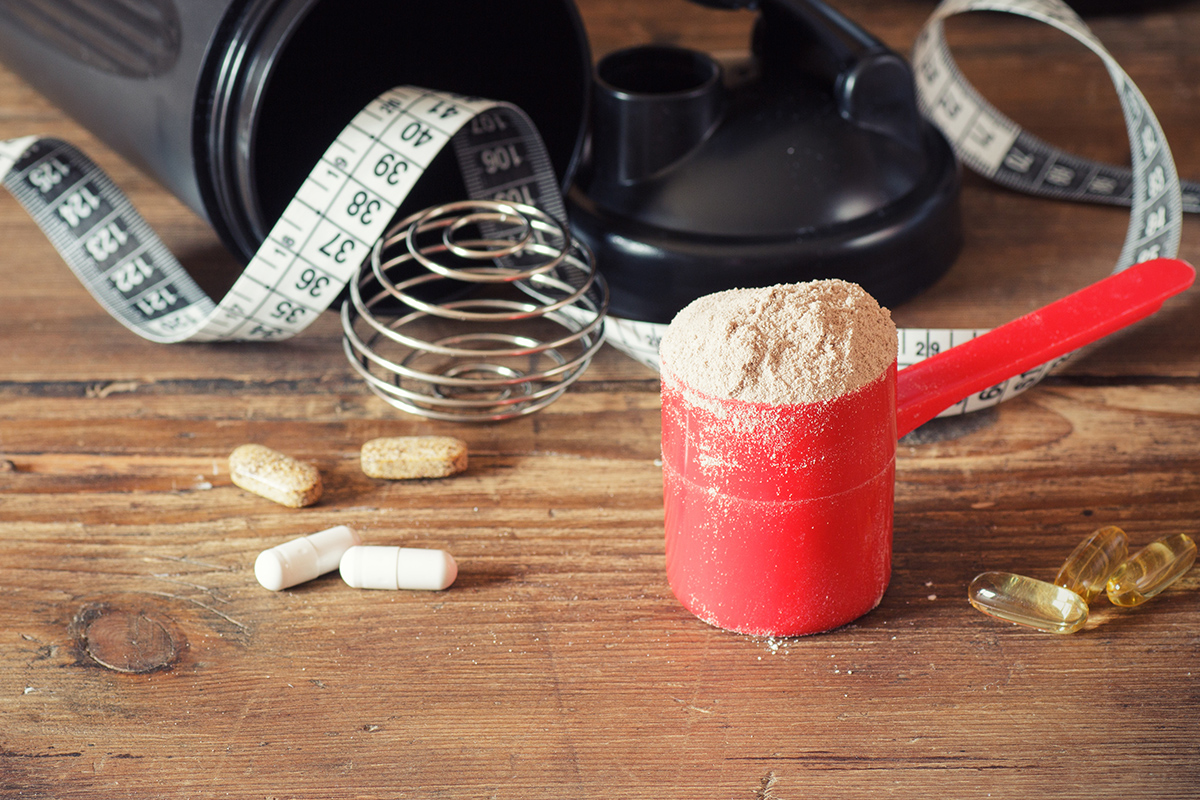

I am a pretty fit, over 50-year-old female. I eat anywhere from 1,200-1,400 calories per day. However, I’ve since learned my real issue is compulsive eating. I keep getting hungry and will crave sugary carbs (something I never really did when younger).
I take Carnitine about twice to three times per day and one to two scoops of Lean 1 fat burning meal replacement per day. I take 1 scoop in the morning at times with 2 wheat bread slices, a banana at times. I take another scoop again after a workout. The Lean 1 is about 95 calories for one scoop (11g carb cal/ 2.2g fat cal /10g prot cal). I started to use a post-workout scoop as a meal replacement generally. I must say the urge to overeat dramatically decreased doing all of this and my sugar levels and carb levels are more balanced in the day (protein and fat also)!
Dinner is the heaviest meal and, by the time I eat, I’m hungry for it. I recently added a microcellular casein protein scoop at night after working or as a snack hoping it will help achieve a more muscular / defined. I tend to crave candies around 11pm and one reason I chose the Casein option as well as for other benefits. I wanted recommendations on how to incorporate these three items into my daily regimen if I’m not doing so appropriately.
– Kina C.

Kina, it sounds like your supplements have had the desired impact on your compulsive eating and carbohydrate cravings. Let me say that, although I normally promote whole food solutions to hunger and other dietary issues, I’m glad these are working for you. Still, I’m curious if you tried a solid option (like half an apple with peanut butter) after workouts to forestall the candy craving?
Your intake of the meal replacement and protein powder total around 300 calories, which is a considerable portion of your day. Not knowing which foods these replaced and if they subsequently added or reduced intake from your previous eating habits, it’s difficult to comment on their use. Plus, “fat burning” supplements have other non-caloric components such as caffeine or other stimulants.
My feedback would also be to follow each products’ limits for use. Know that protein utilization at one time is rather limited (about 30 grams per meal), thus you may not be getting the most out the fat-burning meal replacement shake and micellar casein protein scoop if taken together after your workout. Perhaps moving one to an afternoon snack before dinner is in order. Sounds like your day is relatively low-fat and low-calorie leading up to dinner, therefore it’s no surprise you’re hungry enough to eat a ‘heavy’ meal.
Also, I’d advise sticking to your vegetables and protein dinner, and consider adding a half-cup of brown rice on your workout evenings. Don’t forget to search the Living Healthy blog for related inquiries! Read our previous answers regarding cravings and hunger for more advice.
– Debbie J., MS, RD
This article should not replace any exercise program or restrictions, any dietary supplements or restrictions, or any other medical recommendations from your primary care physician. Before starting any exercise program or diet, make sure it is approved by your doctor.
Some questions have been edited for length and/or clarity.
 Have a nutrition question? Our registered dietitian is ready to help!
Have a nutrition question? Our registered dietitian is ready to help!
Email nutrition@lafitness.com or submit your question below and it may be featured in an upcoming article!
If you’re careful with your nutrition, working out weekly, and still experiencing problems with your weight, take a moment to read this QA.
Blood sugar control isn’t easy. These are Debbie’s top recommendations for how to address weight control with Type II Diabetes.
Does Intermittent Fasting give you enough time to pack the day's protein? Our registered dietitian helps clear up the confusion!


I would like to increase my bone density. Do you have any suggestions for me regarding the best vegan foods to eat?
Very respectfully,
– Brenda H.

Congratulations on providing the first bone density inquiry to Living Healthy! Your answer follows. First, here’s a brief primer on bone mineralization for the rest of our audience: Bone is actually a living tissue with blood supply to the marrow and cells that are adding tissue (osteoblasts) while others remove it (osteoclasts). The main structural compound is hydroxyapatite, made from the minerals calcium and phosphorus. Bone also contains small amounts of magnesium, sodium and bicarbonate. Density refers to the mass of the bone mineral material in a certain volume. Peak bone mass occurs around age thirty years. Keeping bones strong and avoiding loss of the matrix helps to prevent a porous condition later in life called osteoporosis.
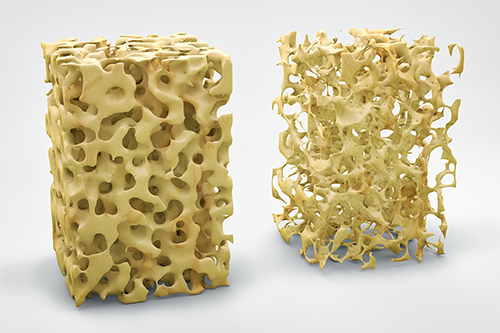
Diet and physical activity are controllable lifestyle factors that account for 10–50% of bone mass and structure. Physical activity stresses the bone to adapt and strengthen. Maintaining an adequate weight allows optimal pressure from gravity against the ground. Not smoking and avoiding heavy alcohol use prevents mineral loss due to tobacco products and drinking.
A well-balanced diet is important for bone health throughout the lifespan though notably significant are calcium and vitamin D. As mentioned previously, calcium is a major mineral component of bone structure while vitamin D assists in calcium absorption and utilization. The majority of the body’s phosphorus and magnesium are found in the skeleton. Other micronutrients that appear to play a positive role in bone health include vitamins B12, C and K, and minerals copper, manganese, zinc, potassium and iron.
Vegan diets abundant in whole grains, legumes, fruits, vegetables, nuts and seeds that are not excessive in sodium or caffeine can promote optimal bone density, but may need to be supplemented in certain areas. The strongest plant sources of the aforementioned nutrients are dark green leafy vegetables, cabbage, broccoli, beans, mushrooms exposed to light, almonds, blackstrap molasses, okra, calcium-set tofu, fortified nut milks, nut butters, brown rice, dried figs, chia seeds, potatoes, citrus fruit, strawberries, tomatoes, dried coconut and cocoa. Supplements of vitamin B12 are advised for vegans since it is not found in plant foods.
Sources:
– Debbie J., MS, RD
This article should not replace any exercise program or restrictions, any dietary supplements or restrictions, or any other medical recommendations from your primary care physician. Before starting any exercise program or diet, make sure it is approved by your doctor.
Some questions have been edited for length and/or clarity.
 Have a nutrition question? Our registered dietitian is ready to help!
Have a nutrition question? Our registered dietitian is ready to help!
Email nutrition@lafitness.com or submit your question below and it may be featured in an upcoming article!
If you’re careful with your nutrition, working out weekly, and still experiencing problems with your weight, take a moment to read this QA.
Blood sugar control isn’t easy. These are Debbie’s top recommendations for how to address weight control with Type II Diabetes.
Does Intermittent Fasting give you enough time to pack the day's protein? Our registered dietitian helps clear up the confusion!
Be the first to know about exclusive
content, deals and promotions